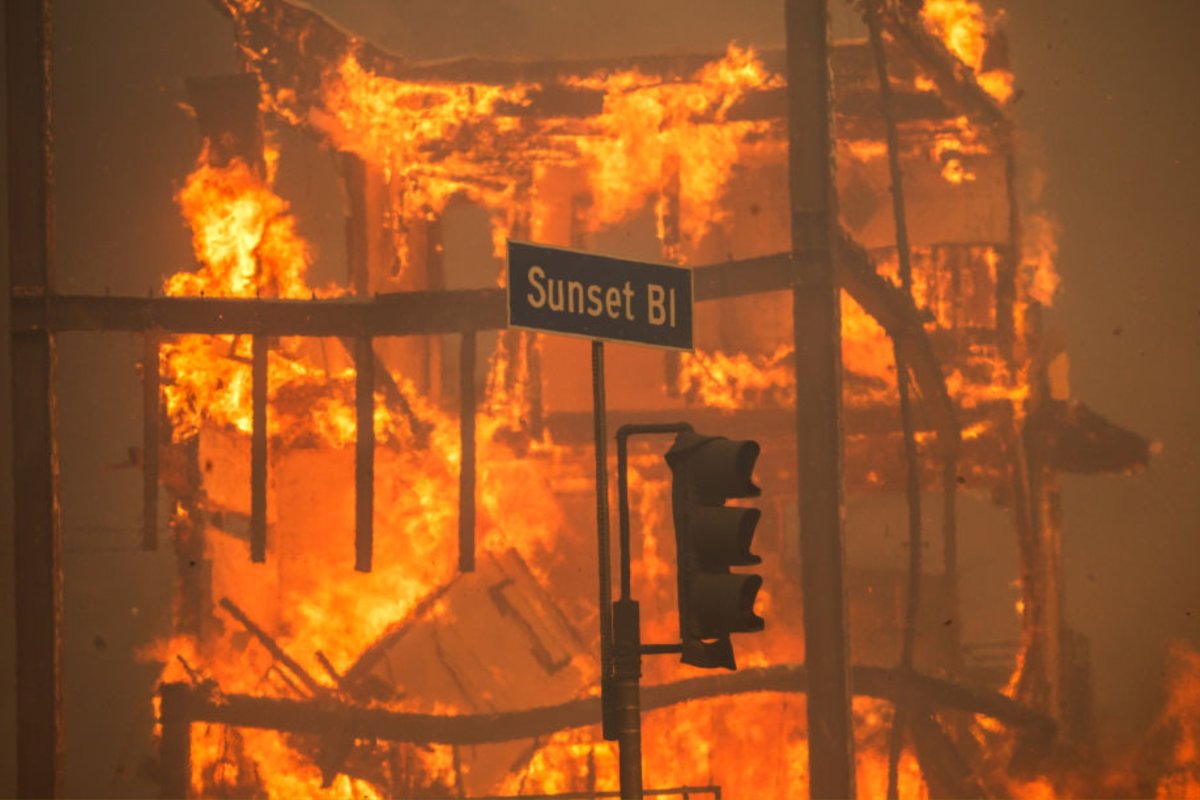Late on the night of Tuesday, 22 October 1991, long-time friend Greg called and said simply, "We lost the house." Greg and his father had built, largely by hand, a beautiful house with a 270-degree view of the San Francisco Bay, with a floor of hand-cut slate on which sat the baby grand piano.
Now it was one of the 3,000 dwellings, mostly single-family houses, that had been destroyed by the Berkeley-Oakland Hills fire, which killed 25 people at the time and likely hastened the deaths of many others.
Greg and his wife became "unhoused," a term that wasn't used then but is now the category for the thousands of Americans living under bridges, in makeshift and manufactured tents on sidewalks, in their cars or RVs, in abandoned buildings.
There's an interesting juxtaposition right now of the people at least temporarily termed "unhoused," as thousands of dwellings in the Los Angeles area have been utterly destroyed by the several brush fires in formerly nice, up-scale neighborhoods.
Any scorn we might have for the Americans who've been living that way over the past years might well be modified now that nearly 200,000 people who were, yesterday, well housed and otherwise comfortable have now been forced from their homes, houses and apartments, which may or may not still exist. For thousands, everything destroyed in seconds.
Unhoused—from Malibu and Pacific Palisades and Pasadena and—it goes on. With no time to collect or save anything, cars left because of traffic jams. For the fortunate, only until it's safe to return to homes undamaged or only slightly so. For thousands, only memories.
Greg, as he retreated from the rooftop with his garden hose in 1991, conscious from his days in artillery during Vietnam War that the fire would overtake him, went to the garage.

His wife, Sydney, was shopping in downtown Berkeley. He looked at the convertible and at the fire, he put the two big dogs and his computer discs instead into the pick-up and drove—at one point through 30' or more of flames—to safety, with naught left of the house, except a tourist version of a tiny Greek oil lamp I gave him after our 5 months in Europe when we were 20: it was already once baked, so the fire didn't destroy it.
Some parts of the cinderblock walls remained, and the long I-bar that had held up the huge living room was now melted into a U-shape. The slate floor had vaporized.
In southern California, thousands of people who were happy and comfortable last week now find all their "papers" and thumb drives and clothes and books, family photos, everything gone—even items in "Safety Deposit Boxes" that were stored in now incinerated banks.
No extra clothes. No food. No beds.
Maybe they have a relative in, say, Bakersfield, who'll let them sleep in the guest room. Or perhaps some have a second house by Tahoe or on Maui or in Provence.
And maybe now, we—including your author—recognize that some of the folks under the bridges might be there for other than drug-and-alcohol reasons: some lost everything in the divorce—some lost jobs and couldn't make mortgage payments; some had medical expenses—for some, their house burned down.
This can certainly include the people working for the well housed as full or part-time housekeepers, gardeners, au peres, pool boys, and so on, some living in the now-destroyed servants' quarters. Some might thereby have lost their housing and total income, while others might lose a day or two's work, and maybe tools, at each now-destroyed house.
I could go on.
I sincerely sympathize, even empathize, with the people who earned the expensive and comfortable homes now ashes, houses in an area with eucalyptus trees—as flammable as anything—surrounded by brush which had flourished during past rains but now has had, some reports say, only three percent of the normal and necessary rainfall, with the Santa Ana winds blowing the flames at as much as 100 miles per hour.
Greg and Sydney lived in a series of rental homes as they fought for full payment of the insurance they'd purchased for the beautiful house high on a Berkeley hill, before the '91 fire, and finally settled in one in a nice suburb.
If there is such a thing as "fault," one can't assign fault to the Los Angeles, or Berkeley and Oakland, or the town of Paradise, twice damaged by fires, or any other homeowners for living where they did.
But seeing these admirable people now completely bereft, we might better reevaluate our attitudes, and increase our compassion not just for the people who've just lost multi-million dollar houses, but also for the unhoused so scorned and "swept" who might not have wanted to be living in a tent.
As with the Angelenos today, it wasn't necessarily their fault.
Peter Mehren lives part of each year on California's Central Coast and part in Toronto, Ontario, Canada. He has worked as a journalist, editor, teacher, actor, and office manager, among other tasks.
All views expressed are the author's own.
Do you have a unique experience or personal story to share? See our Reader Submissions Guide and then email the My Turn team at myturn@newsweek.com.
fairness meter
About the writer
Peter Mehren lives part of each year on California's Central Coast and part in Toronto, Ontario, Canada. He has worked ... Read more



